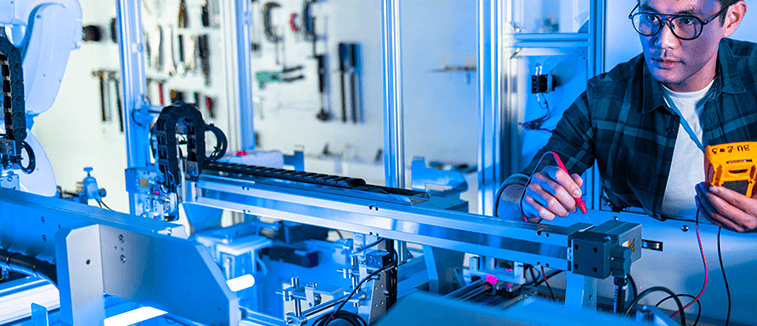Commissioning Engineer
Tests the functionality and reliability of systems, components and equipment.
Job opportunities
-
Jobs in Jobstreet right nowJob growth
-
In the last yearSalary
-
Typical monthly salaryJob satisfaction
-
Job opportunities
-
Jobs in Jobstreet right nowSalary
-
Typical monthly salaryJob growth
-
In the last yearJob satisfaction
-
On this page
- What's it like to be a Commissioning Engineer?
- How to become a Commissioning Engineer
- Latest Commissioning Engineer jobs
- Top skills and experience for Commissioning Engineers
What's it like to be a Commissioning Engineer?
A Commissioning Engineer is responsible for supervising the installation and running of equipment to ensure optimum performance. They perform tests, troubleshoot, conduct adjustments and assess the operation of systems and machinery. The role can be found in many industries such as the manufacturing, energy and electrical sectors. Commissioning Engineers require not only a strong understanding of engineering, but also excellent problem-solving skills, as they are often expected to find solutions to complex operational issues.

Tasks and duties
- Developing project plans, setting goals and determining strategies to complete projects accurately and efficiently.
- Testing the functionality and reliability of system equipment to ensure that it is operating efficiently.
- Commissioning and de-commissioning of various systems and components.
- Creating technical reports and providing recommendations based on the results of tests and analysis.
- Interacting with clients and project team members so that system requirements are being met and addressing any issues that arise during the commissioning process.
- Monitoring, adjusting and troubleshooting system equipment as needed.
- Maintaining accurate records and documentation of system tests, inspections and commissioning files.
How to become a Commissioning Engineer
Becoming a Commissioning Engineer in the Philippines involves earning an engineering degree, gaining practical experience in commissioning processes, obtaining certifications like CxA or CPMP, and honing communication skills for effective project management.
- 1.Obtain a bachelor’s degree in Engineering, preferably in Electrical, Mechanical, or Chemical Engineering, focusing on systems and equipment relevant to commissioning.
- 2.Develop proficiency in commissioning processes, including equipment testing, troubleshooting, and documentation.
- 3.Gain practical experience through internships or entry-level positions in engineering firms or construction projects involved in commissioning.
- 4.Consider pursuing certifications such as the AEE Certified Commissioning Authority (CxA) or ASHRAE Commissioning Process Management Professional (CPMP) to validate expertise in commissioning practices.
Compare your salary
Find out how your salary compares with the average salary for Commissioning Engineers.Latest Commissioning Engineer jobs on Jobstreet
Be one of the first to discover these recently listed jobs, or browse all Commissioning Engineer jobs on Jobstreet right now.Did you find this helpful?
Skills and experience employers are looking for
Having the right skills and experience can make you an in-demand applicant. Commissioning Engineer employers on Jobstreet are looking for job seekers with expertise in the following areas. Commissioning
Transformers
Pre-Commissioning
Troubleshooting
Electrical Equipment
Electrical Power Systems
Electricity Distribution
Power Systems
Electronic Engineering
Engineering Calculations
Installation
Switchgear
Sustainable Energy Technologies
Listening to English Language
Electrical Engineering
Drawing
Mechanical Systems
Systems Testing
SCADA Programming
Control Systems
Source: Jobstreet job ads and Jobstreet Profile data
Did you find this helpful?